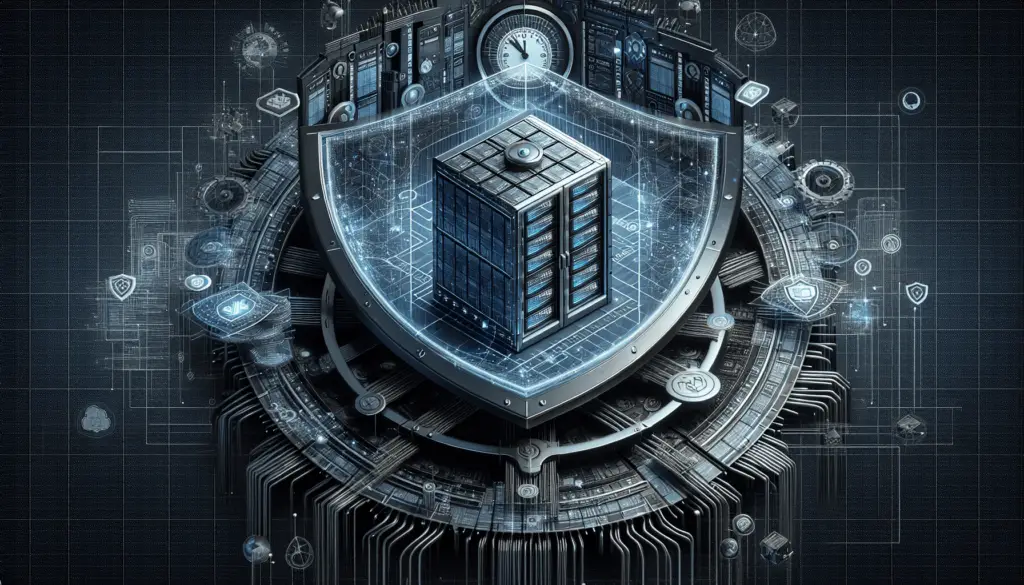In this article, you will learn valuable strategies for preserving digital information in a grid-down world. As technology becomes more prevalent in our everyday lives, it is important to have a plan in place for preserving important digital information in the event of a power outage or grid failure. By implementing these strategies, you can ensure that your digital assets remain safe and accessible even in the most challenging of circumstances. Have you ever considered what would happen to all the digital information we rely on daily in a scenario where the power grid goes down? From online banking records to essential documents and precious memories stored on your devices, the loss of power could lead to a massive loss of data. But fear not, as there are strategies you can implement to preserve your digital information even in a grid-down world. Let’s explore some of these strategies together.

The Importance of Preserving Digital Information
Preserving digital information in a grid-down world is crucial for many reasons. Your digital data likely includes important documents, irreplaceable memories, and financial information that you may need access to even in a power outage situation. By taking steps to safeguard this information, you can ensure that you still have access to it when needed, regardless of the circumstances.
Your personal and professional documentation
Your digital documents, such as birth certificates, legal paperwork, and tax records, hold significant value and should be preserved in the event of a power outage. It is essential to have access to these documents when necessary, even in a grid-down scenario, to prove your identity or address legal matters.
Precious memories captured in digital format
Photographs, videos, and other digital media capture precious memories that you may not want to lose in the event of a power outage. Preserving these digital files can ensure that you can still relive those moments even without power.
Strategies for Preserving Digital Information
Maintain Physical Backups of Essential Data
In a grid-down scenario, having physical backups of your essential digital data is crucial. Consider printing out important documents, saving photos to physical media such as USB drives or external hard drives, and creating hard copies of digital records that you may need access to.
Store Physical Backups in a Secure Location
When storing physical backups of your essential data, ensure that they are kept in a secure location. Consider using a fireproof safe, a safety deposit box, or another secure storage option to protect your backups from damage or loss.
Encrypt Your Digital Data
Encrypting your digital data adds an extra layer of security to your information, making it more difficult for unauthorized individuals to access or tamper with your files. Use encryption tools to secure your data and ensure that only those with the proper credentials can access it.
Utilize Cloud Storage Services
Cloud storage services can offer a convenient way to backup and access your digital information from anywhere, even in a grid-down scenario. Consider using reputable cloud storage providers to store your essential data securely in the cloud.
Implement a Digital Asset Management System
A digital asset management system can help you organize, categorize, and store your digital files in a structured and easily accessible manner. By implementing a DAM system, you can quickly locate and retrieve your essential data, even in a grid-down world.
Invest in Solar Power Solutions
In a grid-down world, having access to alternative power sources like solar power can be a game-changer. Consider investing in solar panels, portable solar chargers, or solar-powered generators to keep your devices powered and functional, allowing you to access your digital information even without grid power.
Create a Faraday Cage for Electronics
A Faraday cage is a shielded enclosure that blocks electromagnetic fields, providing protection for electronic devices from external interference. Consider creating a Faraday cage for your essential electronics to protect them from potential damage in a grid-down scenario.
Establish Offline Communication Channels
In a grid-down world, offline communication channels become essential for staying connected with others. Establishing offline communication methods such as a two-way radio system, physical mail, or hand-delivered messages can help you stay in touch with loved ones and relay important information even without internet or phone service.
Develop a Data Recovery Plan
Creating a data recovery plan can help you quickly recover and restore your essential digital information in the event of data loss or corruption. Develop a comprehensive plan that outlines the steps to recover your data, including backup procedures, data restoration methods, and security measures to protect your information.

Conclusion
Preserving digital information in a grid-down world may seem like a daunting task, but with the right strategies and preparations, you can ensure that your essential data remains accessible, safe, and secure. By following the strategies outlined in this article, you can take steps to safeguard your digital information and maintain access to your important documents, memories, and records even in challenging circumstances. Remember, preparedness is key, so start implementing these strategies today to protect your digital information for the future.
